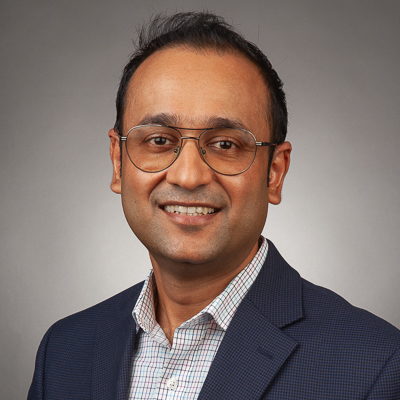
Shaurya Agarwal
Associate Professor
Email: shaurya.agarwal@ucf.edu
Phone: 407-823-6205
Office: ENG II, Room 409
- Biography
- Research
- Publications
- Organizations
- Courses
- News
Shaurya Agarwal is currently (2024-present) an Associate Professor in the Civil, Environmental, and Construction Engineering Department at the University of Central Florida. He joined UCF in 2018 as an assistant professor and key member of the Future City Initiative. He is the founding director of the Urban Intelligence and Smart City (URBANITY) Lab and currently serves as the director of Future City Initiative.
He was previously (2016-18) an Assistant Professor in the Electrical and Computer Engineering Department at California State University, Los Angeles. He completed his post-doctoral research at New York University (2016) and his Ph.D. in Electrical Engineering from the University of Nevada, Las Vegas (2015). His B.Tech. degree is in Electronics and Communication Engineering from the Indian Institute of Technology (IIT), Guwahati.
His research focuses on interdisciplinary areas of cyber-physical systems, smart and connected transportation, and connected and autonomous vehicles. Passionate about cross-disciplinary research, he integrates control theory, information science, data-driven techniques, and mathematical modeling in his work. He has published one book, over 35 peer-reviewed publications, and multiple conference papers. His work has been funded by several private and government agencies including Oculus, FHWA, and FDOT. He is a senior member of IEEE and serves as an associate editor of IEEE Transactions on Intelligent Transportation Systems.
- Data-driven modeling
- Physics-informed machine learning
- Cyber-physical systems
- Smart cities
- Intelligent transportation systems
- Huang, AJ*., Agarwal, S. (2023). On the Limitations of Physics-informed Deep Learning: Illustrations Using First Order Hyperbolic Conservation Law-based Traffic Flow Models. IEEE Open Journal of Intelligent Transportation Systems.
- Shabab, R., Mustavee, S.*, Agarwal, S., Zaki, M., & Das, S., (2023). “Exploring Dynamic Mode Decomposition for Robust System Identification: Applications to Adaptive Signalised Intersections,” Journal of Intelligent Transportation Systems: Technology, Planning, and Operations, 1-15. (Taylor and Francis)
- Das, S., Mustavee, S*., Agarwal, S., Hasan, S. (2023). Koopman-theoretic Modeling of Quasiperiodically Driven Systems: Example of Signalized Traffic Corridor. IEEE Transactions on Systems, Man and Cybernetics: Systems.
- Krishen, A. S., Berezan, O., Agarwal, S., Kanchen, S. (2023). Affective commitment recipes for wine clubs: Value goes beyond the vine. Journal of Business Research. Vol. 157, 113464. (Elsevier)
- Huang, AJ*., Agarwal, S. (2022). Physics-informed deep learning for traffic state estimation: illustrations with LWR and CTM Models. IEEE Open Journal of Intelligent Transportation Systems 3, 503-518
- Mustavee, S*., Agarwal, S., Enyioha, C., & Das, S. (2022). A linear dynamical perspective on epidemiology: interplay between early COVID-19 outbreak and human mobility. Nonlinear Dynamics, 1-20. (Springer)
- Krishen, A. S., Berezan, O., Agarwal, S., Kachroo, P., & Raschke, R. (2021). The digital self and virtual satisfaction: A cross-cultural perspective. Journal of Business Research. Vol. 124, pp. 254-263. (Elsevier)
- Muhlmeyer, M.*, Agarwal, S., & Huang, J.* (2020). Modeling Social Contagion and Information Diffusion in Complex Socio-Technical Systems. IEEE Systems Journal, vol. 14, no. 4, pp. 5187-5198.
- Senior member of the Institute of Electrical and Electronics Engineers
- CGN 3405: Applied Numerical Methods for Civil Eng
- CGN 5340: Internet of Things: Applications in Smart Cities
- CGN 5341: Interdisciplinary Intro Smart City Applications
- CGN 6343: Cyber-Physical Systems and Smart Cities
- TTE 6275: Connected and Autonomous Vehicles